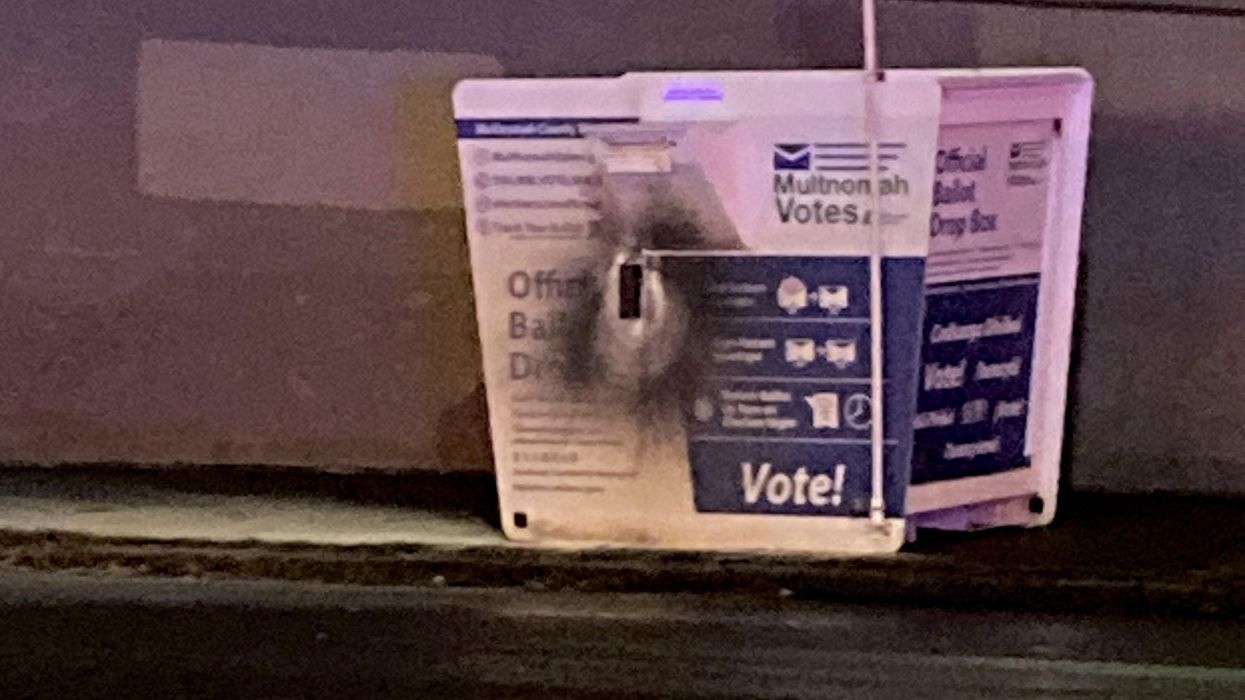"I stand by my vote and my opposition to forking out $10,000 to people who freely chose to attend college," Golden (D-Maine) said. "They were privileged to have the opportunity, and many left college well-situated to make six-figure salaries for life."
He added that people who "want free money for college" should join the military or "join a union and enter an apprenticeship" to gain "a career and hard skills without college debt."
The Beacon approached Golden a week after public disclosures showed that the Blue Dog Political Action Committee, which benefits the coalition Golden co-chairs, accepted donations from Sallie Mae—officially known as the Student Loan Marketing Association—and the Career Education Colleges and Universities PAC less than a month after he voted to block President Joe Biden's plan to forgive up to $20,000 in student debt for many borrowers.
Golden's co-chair, Rep. Marie Gluesenkamp Perez (D-Wash.), was the only other Democrat to vote in favor of blocking the plan.
Sallie Mae's contribution to the PAC was the maximum possible contribution for the company.
After Golden's defensive comments to the Beacon on Friday, the Debt Collective, which represents some of the 45 million Americans who owe a collective $1.8 trillion in student loan debt, asked on social media whether Sallie Mae wrote the lawmaker's statement.
"Jared Golden is an elitist taking handouts from Sallie Mae to kill student debt cancellation for the working class," said the group.
James Myall, a policy analyst for the Maine Center for Economic Policy, pointed out that Golden's claim about "six-figure salaries" is hardly relatable for the people he represents in Congress, as the average student debt for graduates of University of Maine is $35,000, while the median income for those graduates who stay in Maine is just $70,000 10 years after finishing school.
Communications professional Morgan Urquhart said that as a former employee of Golden's in Maine's 2nd Congressional District, his comments about student loan borrowers—including 92,000 of his constituents who would have been eligible for Biden's cancellation proposal—were "truly embarrassing."
"As your former employee, I have to say this divisive language and clear derision for people like me, first-generation college graduates from working class Maine families, goes way beyond disappointing," said Urquhart, replying to Golden on Twitter. "Shame on you."
The grassroots movement People for Bernie Sanders rebuked Golden for using the nation's labor unions to make his case against student debt relief, considering unions including the AFL-CIO, United Auto Workers, and the International Brotherhood of Teamsters have all thrown their weight behind the push for debt cancellation.
Progressive campaigner Robert Cruickshank said "someone should let [Golden] know" that student debt relief is broadly popular across the political spectrum, despite the lawmaker's claim that advocates are so-called "radical leftist elites."
Polling last year showed that 63% of Americans supported student debt cancellation, including 59% of Independents, 83% of Democrats, and 41% of Republicans.
Dan Aibel, the operator of the long-running Twitter account Collins Watch, which reports on Sen. Susan Collins (R-Maine) and Maine politics, said Golden's remarks amounted to an "unfortunate attempt to pit working class Mainers against each other rather than advocating for their interests and working to build solidarity among them."
"This should be read as a declaration from Jared Golden," said Aibel, "that he has no interest in representing the Democratic party in any future statewide race."




